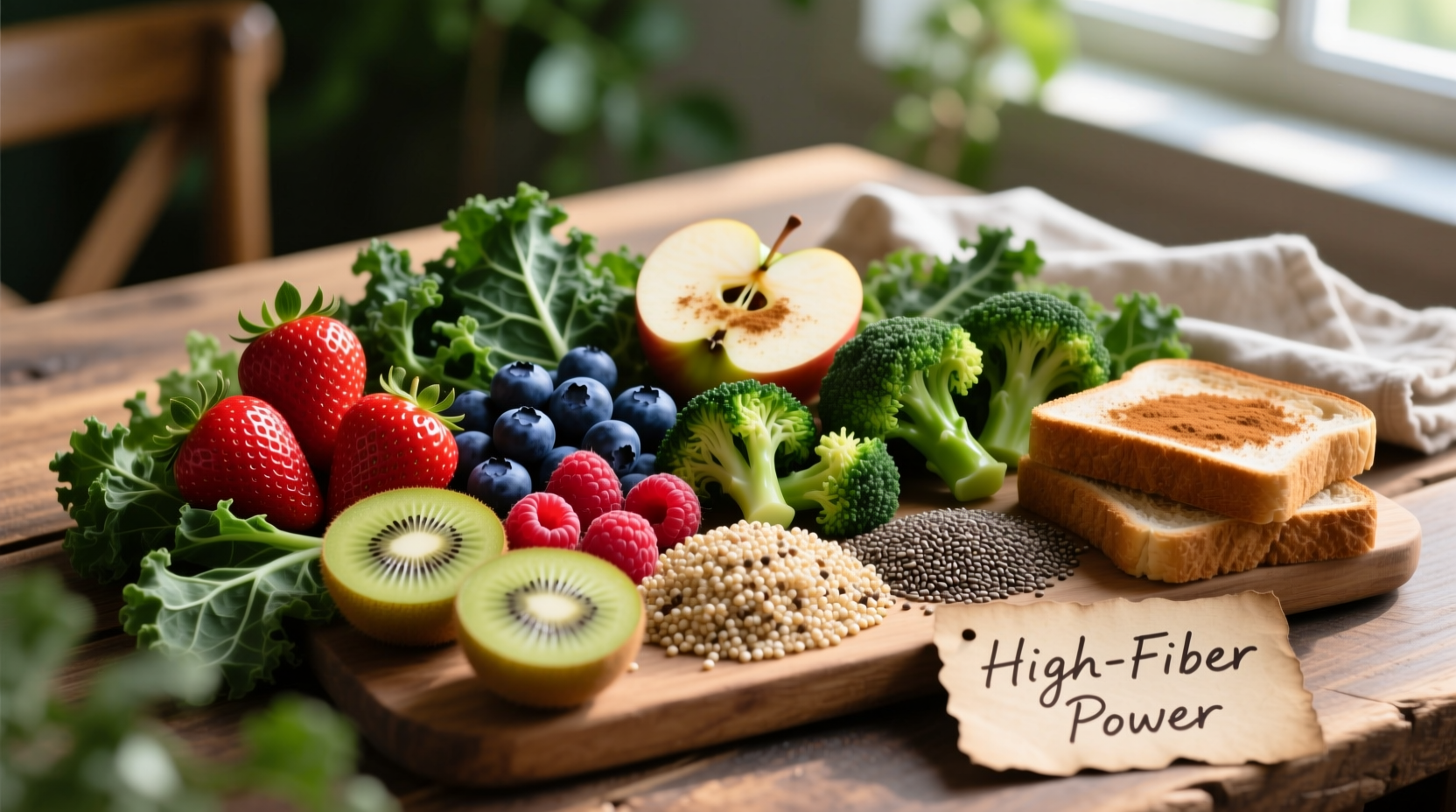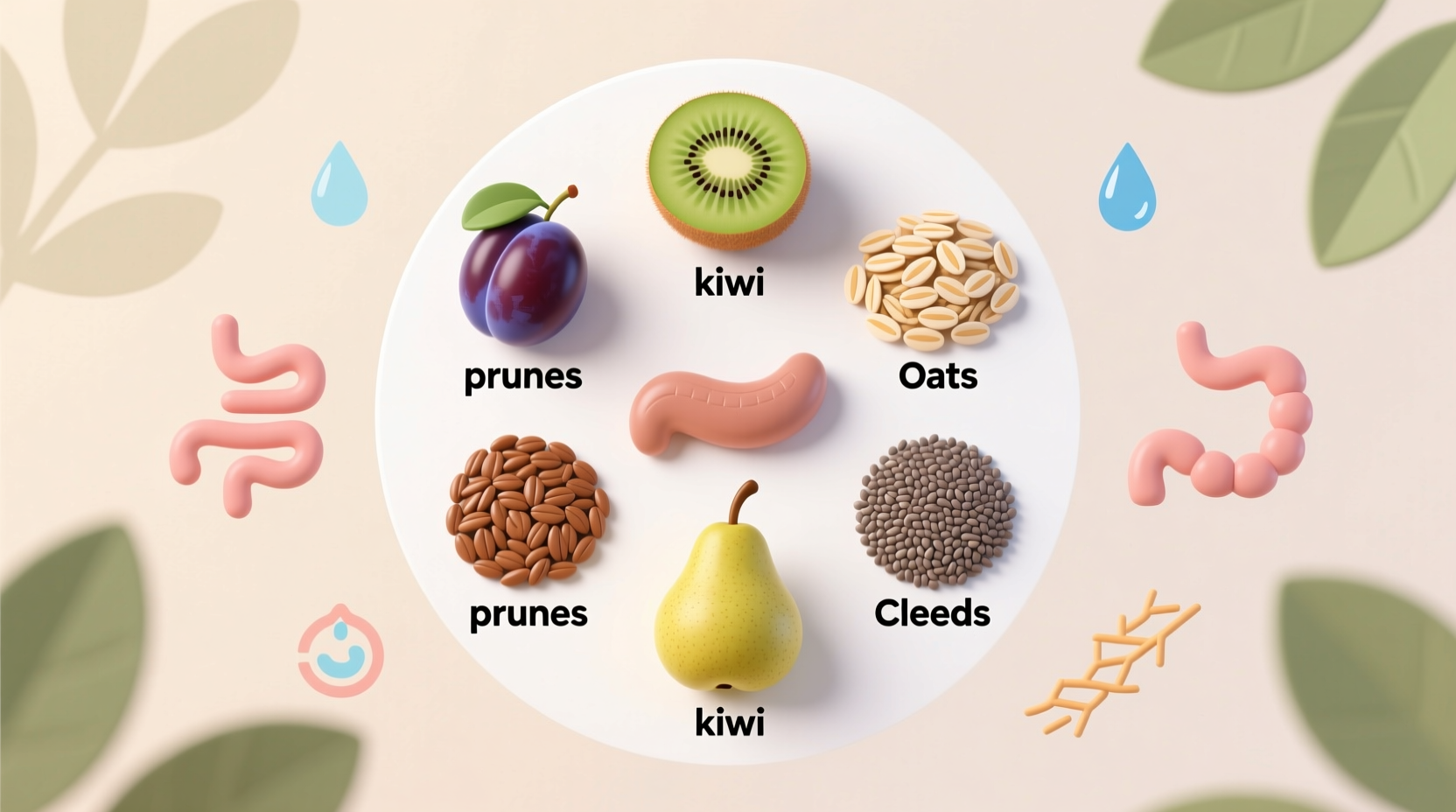The most effective foods that soften stool include prunes, pears, apples (with skin), kiwi, chia seeds, flaxseeds, legumes, oats, and leafy greens. These high-fiber foods work by adding bulk to stool and increasing water absorption in the colon, promoting regular bowel movements. For best results, combine these foods with adequate water intake (at least 8 glasses daily) and gradually increase fiber consumption over 1-2 weeks to avoid bloating.
If you're struggling with hard stools or occasional constipation, dietary changes are often the safest and most effective first approach. Unlike laxatives that can cause dependency, certain natural foods work with your body's digestive system to promote comfortable, regular bowel movements. This guide provides evidence-based dietary solutions backed by nutrition science and digestive health research.
Why Natural Stool Softening Matters for Digestive Health
Constipation affects nearly 16% of adults globally, with many experiencing it at least occasionally. When stool remains in the colon too long, the body absorbs excess water, making it hard and difficult to pass. Chronic constipation can lead to hemorrhoids, anal fissures, and decreased quality of life. The good news? Research from the National Institute of Diabetes and Digestive and Kidney Diseases shows that dietary modifications successfully relieve symptoms in 75% of mild to moderate cases.
The Science Behind Fiber and Stool Consistency
Fiber works through two mechanisms to soften stool:
- Soluble fiber (found in oats, apples, beans) absorbs water like a sponge, forming a gel that softens stool
- Insoluble fiber (in whole wheat, vegetables, nuts) adds bulk and speeds transit time through the digestive tract
A landmark study published in the American Journal of Clinical Nutrition demonstrated that increasing daily fiber intake from 10g to 25g significantly improved stool consistency and frequency within just 2 weeks. The Academy of Nutrition and Dietetics recommends 25-38 grams of fiber daily, yet most adults consume only 15g.
Top 8 Evidence-Backed Foods That Soften Stool
1. Prunes (Dried Plums)
Prunes contain both soluble and insoluble fiber (3g per ¼ cup) plus sorbitol, a natural sugar alcohol with mild laxative effects. A Mayo Clinic study found that participants eating 50g of prunes daily (about 7 medium prunes) had significantly better stool consistency than those using psyllium husk supplements.
2. Chia and Flax Seeds
These tiny powerhouses absorb up to 10 times their weight in water. Just 1 tablespoon of chia seeds provides 5g of fiber. For best results, soak seeds in water for 15 minutes before consuming to activate their water-absorbing properties. A 2017 clinical trial showed ground flaxseed improved constipation symptoms in 80% of participants within 3 days.
| Fiber Source | Fiber per Serving | Key Benefits | Best Consumed |
|---|---|---|---|
| Prunes (¼ cup) | 3g | Sorbitol + dual fiber action | Soaked in water overnight |
| Chia seeds (1 tbsp) | 5g | High water absorption capacity | Soaked in liquid for 15+ min |
| Kiwi (1 medium) | 2.5g | Actinidin enzyme aids digestion | With skin for maximum benefit |
| Legumes (½ cup) | 7-8g | Protein + fiber combination | Cooked thoroughly to avoid gas |
3. Kiwi
Research in Advances in Nutrition revealed that eating two kiwis daily increased bowel movement frequency and softened stool more effectively than psyllium supplements. The magic lies in both fiber content and actinidin, an enzyme unique to kiwi that enhances intestinal motility.
4. Pears and Apples
These fruits contain pectin, a soluble fiber that speeds colonic transit time. A medium pear with skin delivers 6g of fiber. A CDC analysis found that fruit consumption correlates with better digestive health outcomes compared to fiber supplements alone.
How to Implement These Foods Safely and Effectively
Many people make these common mistakes when trying to soften stool through diet:
- Increasing fiber too quickly (causing gas and bloating)
- Not drinking enough water (fiber needs water to work properly)
- Focusing only on supplements instead of whole foods
- Ignoring other lifestyle factors like physical activity
Follow this 7-day implementation plan for best results:
- Days 1-2: Add 1 serving of high-fiber food to your current diet (e.g., ½ cup berries with breakfast)
- Days 3-4: Increase to 2 servings and drink 8 ounces of water with each fiber-rich meal
- Days 5-7: Incorporate 3-4 servings throughout the day while maintaining hydration
Remember that fiber takes 24-72 hours to affect bowel movements. Track your symptoms in a journal to identify which foods work best for your body.

When to Consult a Healthcare Professional
Dietary changes work for most cases of occasional constipation, but certain symptoms require medical attention:
- Constipation lasting longer than 3 weeks despite dietary changes
- Blood in stool or rectal bleeding
- Unexplained weight loss accompanying digestive issues
- Severe abdominal pain with constipation
- Family history of colon cancer or inflammatory bowel disease
The American Gastroenterological Association emphasizes that sudden changes in bowel habits after age 50 warrant medical evaluation to rule out serious conditions.
Common Mistakes to Avoid
While seeking natural stool softening solutions, avoid these counterproductive practices:
- Over-relying on coffee - While caffeine stimulates colon activity, excessive consumption can dehydrate you, counteracting fiber's benefits
- Neglecting magnesium - This mineral helps relax intestinal muscles; include spinach, almonds, and avocado
- Skipping physical activity - Even 20 minutes of walking daily improves intestinal motility
- Using too many processed 'high-fiber' products - Whole foods provide additional nutrients supplements lack
Long-Term Digestive Wellness
For sustained digestive health, combine these fiber-rich foods with:
- Regular meal timing to establish digestive rhythm
- Mindful eating practices (chewing thoroughly)
- Stress management techniques (stress affects gut motility)
- Consistent sleep patterns (gut health follows circadian rhythms)
Remember that optimal digestive health isn't about quick fixes but creating sustainable dietary patterns. The foods that soften stool naturally are the same ones that support overall gut microbiome diversity and long-term wellness.











 浙公网安备
33010002000092号
浙公网安备
33010002000092号 浙B2-20120091-4
浙B2-20120091-4